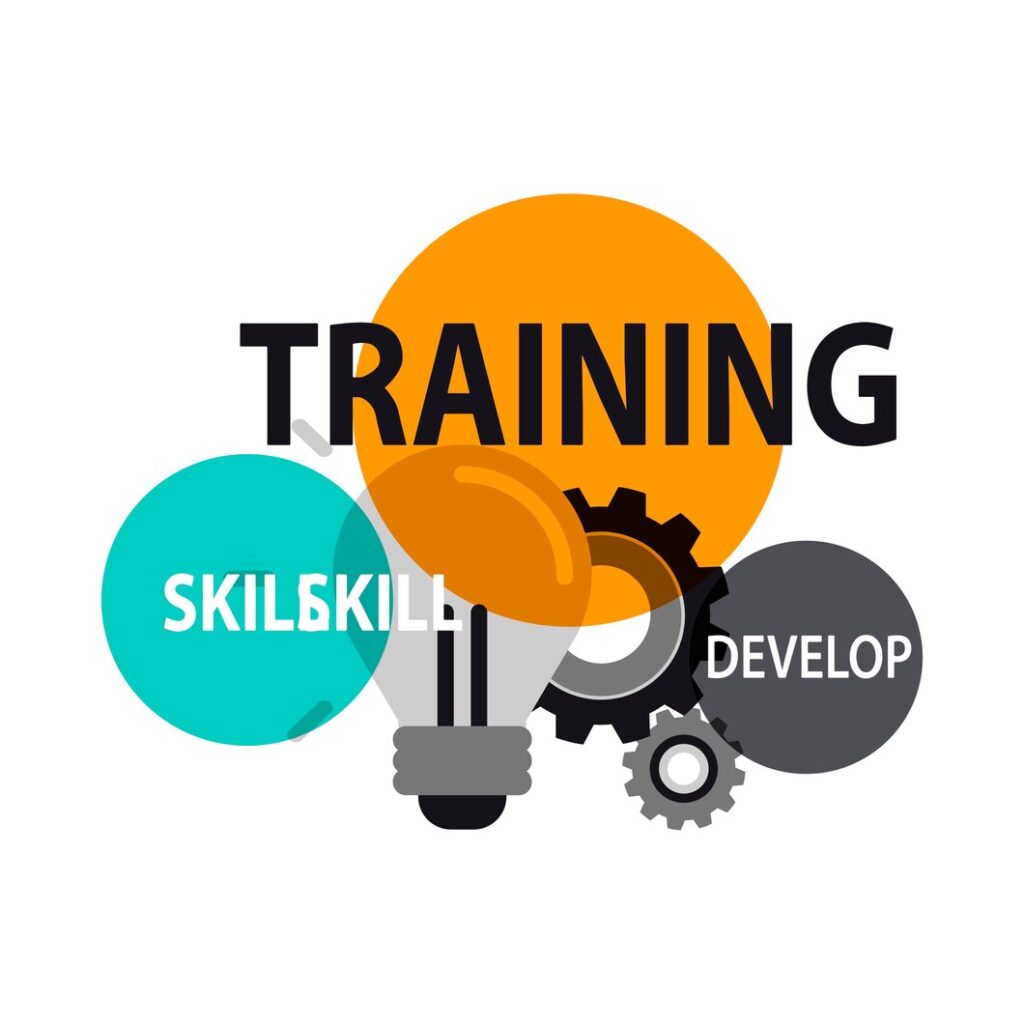The Road to Lean Excellence, following the Master Black Belt pathway, is a journey aimed at achieving high levels of expertise in Lean methodologies and tools.
A Master Black Belt holder is an individual who has acquired the greatest degree of Lean competence and mastery. They are mentors and leaders for the continuous improvement initiatives inside a business.
Let’s delve deeper into the key steps on the Road to Lean excellence and following the master black belt.
Road to becoming a Master Black Belt expert
1. Acquiring foundational knowledge

Learning the basics is the first step on the Road to Lean Excellence. It entails developing a solid grasp of Lean methodology, principles, and technologies.
The Lean Yellow Belt Certification is the foundation to lean excellence to eventually follow a Master Black Belt certification. To learn about the core ideas of Lean, individuals enrol in formal training programs, workshops, or online courses for the yellow belt certification.
This includes researching subjects including process optimization, waste minimization, data analysis, statistical methods, problem-solving frameworks, and project management. Individuals develop a thorough understanding of Lean and its possible applicability in diverse business contexts by gaining this fundamental information.
2. Obtaining Green Belt and Black Belt certifications

The Green Belt and Black Belt certifications are the next stage on the Road to Lean Excellence. These certificates are provided as an official acknowledgement of a person’s expertise in Lean techniques and tools and are frequently provided by approved Lean training organizations.
The second level of certification, the “Green Belt,” concentrates on teaching professionals the information and abilities they need to contribute successfully as team members in improvement initiatives. In addition to helping Black Belts with data gathering and analysis, Green Belts also play a role in the overall success of improvement programs.
The third level of certification, the “Black Belt,” denotes a greater level of proficiency. Black Belts receive training in managing and leading organizational development initiatives. They have a stronger knowledge of statistical analysis, problem-solving strategies, and Lean methodology.
Black Belt certification demands candidates to pass certification examinations, effectively complete training, and how they can apply Lean concepts to actual improvement projects.
Black Belt holders are key contributors in enacting substantial process changes and driving organizational change.
3. Gaining practical experience

Although certificates offer theoretical information and an understanding of Lean, real-world experience is necessary for gaining meaningful expertise.
Participating actively in Lean projects and putting the training’s methodology and tools to use will help you get practical experience.
Individuals can acquire practical expertise in spotting improvement possibilities, conducting data analysis, implementing solutions and gauging the effects of process improvements through working on real-world improvement initiatives.
You can refine your skills and gain a deeper understanding of the challenges associated with process improvement via practical experience. Moreover, you can also develop the ability to navigate complex organizational dynamics.
4. Becoming a certified Black Belt instructor

On the Road to Lean Excellence, becoming a certified Black Belt instructor is a significant milestone. Black Belt holders who have shown their abilities and gained a lot of practical experience can become an instructor.
To ensure that people have the knowledge, communication skills, and teaching abilities required to effectively transmit Lean concepts to others, this stage entails extra training and evaluation.
Green Belts and Black Belts inside an organization must be trained and mentored by certified Black Belt instructors. They educate, offer direction, and promote the effective use of Lean concepts and technologies.
5. Pursuing a Master Black Belt certification

Master Black Belt certification programs involve advanced training beyond the Black Belt certification level. The advanced Lean methodology, statistical analysis methods, change management, leadership, and coaching strategies are covered in greater detail throughout this session.
Programs that provide Master Black Belt certification often demand that applicants fulfil particular prerequisites in order to prove their expertise and ability. Finishing advanced training, passing certification examinations, successfully directing and completing advanced improvement projects, and presenting the outcomes of these projects to a panel of experts are a few examples of these criteria.
6. Mentoring and coaching
The role of mentoring and coaching is the last stage on the Road to Lean excellence.
Master Black Belt holders in an organization are highly significant in the mentorship and coaching of Green Belt and Black Belt-certified professionals. They help project teams by offering advice, know-how, and support, assuring the effective implementation of Lean processes and tools.
Master Black Belt certified professionals support the growth of future leaders and promote an atmosphere of continuous development inside the business via mentoring and coaching.
Benefits of Master Black Belt
The followings are some of the key benefits of being an expert in the master black belt.
1. Expertise in Lean management

The development of expertise in Lean management is one of the main advantages of following a Lean Master Black Belt certification. Master Black Belt certified professionals are highly knowledgeable and skilled in Lean techniques and technologies. They are well knowledgeable about the fundamentals of lean, including locating and reducing waste, simplifying operations, and adding value for clients.
Master Black Belt holders are further qualified to manage and direct businesses in putting Lean methods into practice, advancing process improvements, and improving overall operations thanks to their knowledge.
Their knowledge enables them to spot chances for improvement, do efficient data analysis, and put effective ideas into practice that produce noticeable outcomes.
2. Leadership and mentorship

In companies, Master Black Belt holders serve as catalysts for leadership and mentoring. They act as mentors and advisers to Green Belts and Black Belts as they carry out their improvement initiatives.
Master Black Belt experts guide, counsel, and assist teams in overcoming obstacles thanks to their knowledge and experience. They further act as a source of creativity and drive, pushing project teams in the right direction.
Master Black Belt certified professionals also serve as mentors, imparting their wisdom, recommended methods, and additionally life lessons. They mentor their mentees in decision-making, data analysis, and problem-solving so they may advance as Lean practitioners.
It’s clear that Master Black Belts help the company foster a culture of continual growth via their leadership and mentoring.
3. Strategic impact

Experts of Master Black Belt are capable of strategically influencing their companies. They may contribute to procedures for making strategic decisions since they have a thorough knowledge of Lean principles and practices.
Master Black Belt holders are equipped with the analytical abilities and information needed to evaluate organizational processes. They can further pinpoint opportunities for development and link development activities to the strategic objectives of the company as well. Hence, their capacity to use Lean management practices aids businesses in maximizing operations and cutting expenses. Plus, it also helps to increase customer satisfaction and gain a competitive edge as well.
Professionals’ expertise in Master Black Belt may spearhead strategic initiatives that result in long-term success and sustainable growth by utilizing the Lean principles.
4. Organizational transformation
Master Black Belt holders play a major role in promoting transformation within an organization.
They support firms in adopting a culture of continuous improvement where employees at all levels are engaged and driven to find and remove waste by promoting Lean ideas and practices. They further encourage cross-functional cooperation and process improvement by facilitating the adoption of Lean techniques and tools throughout the business.
Master Black Belt experts direct change initiatives and oversee projects for process improvement, and along with that, they promote the value of lean thinking.
They work to restructure the company and foster an atmosphere of effectiveness, efficiency, and quality.
5. Career Advancement

The Lean Master, Black Belt pathway, leads to several rewarding job prospects. Continuous improvement-focused organizations are aware of the advantages that Lean management offers their business. As a result, these organizations have a significant need for Master Black Belt experts. They are regarded as leaders and pioneers of change who are subject matter experts.
Career choices for Master Black Belt holders are varied and include everything from consultant positions to management positions. Moreover, organizations in a variety of sectors value their knowledge and experience as significant assets.
Professionals can unlock new career prospects, widen their professional networks, and establish themselves as recognized authorities in the Lean management industry by completing the Lean Master Black Belt certification.
Summary
An individual may advance on the Road to Lean excellence and gain a high level of proficiency in Lean techniques and tools by completing these stages in order to become a Master Black Belt. This journey includes acquiring fundamental information, earning Green Belt and Black Belt certifications, acquiring practical experience, turning into a qualified Black Belt instructor, seeking additional training and certification, as well as mentoring and coaching. Each stage builds on the one before it, improving a person’s knowledge, abilities, and capacity to promote substantial advancements and spearhead organizational change.
In summary, pursuing the Lean Master Black Belt pathway has several advantages, such as knowledge of Lean management, possibilities for leadership and mentoring, strategic influence, organizational change, and career advancement. Since Master Black Belt holders are equipped with the knowledge, abilities, and experience needed to optimize operations, they can drive major changes and lead their businesses toward a continuous improvement culture. Individuals may have a long-lasting effect on their businesses and help them succeed in the long run by earning their Lean Master Black Belt.



